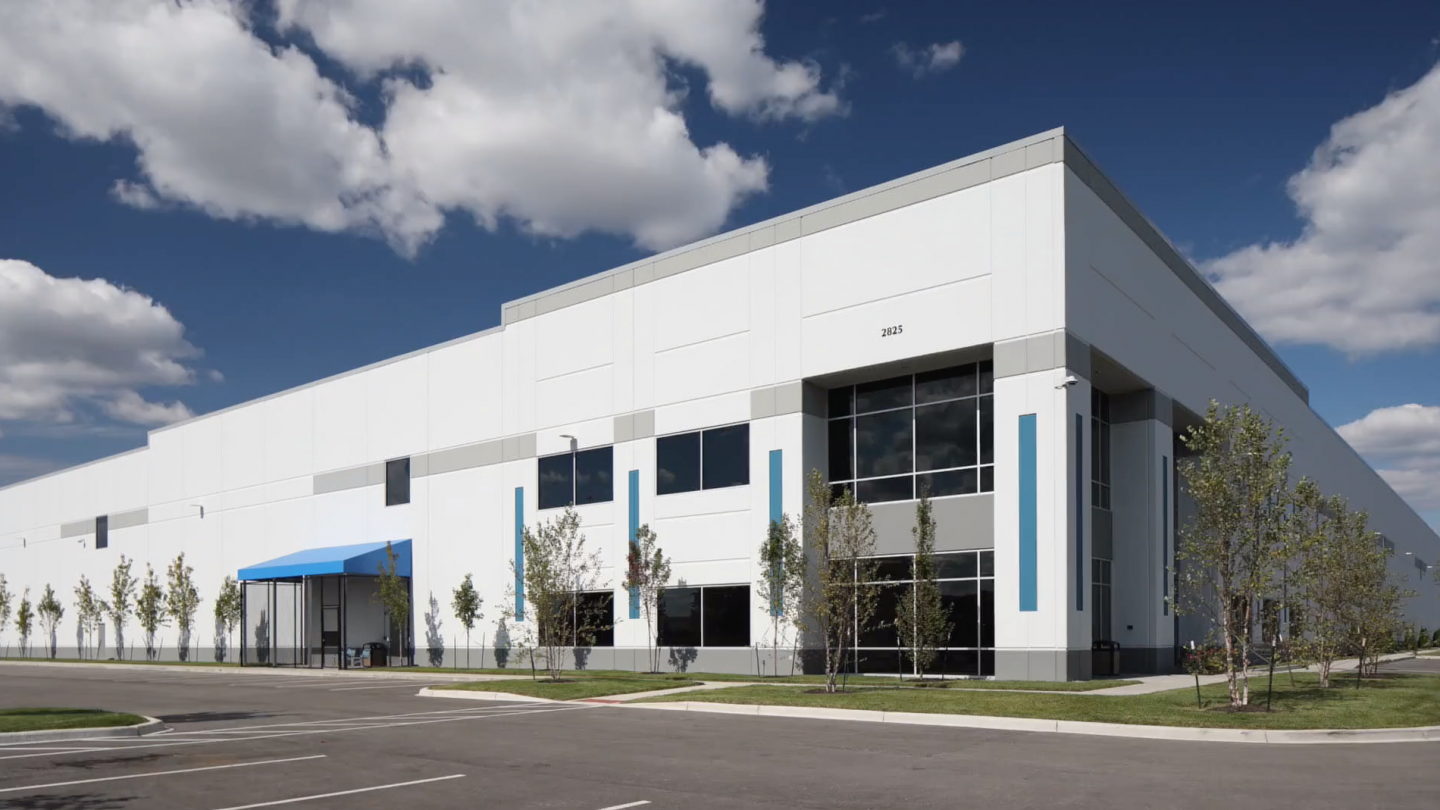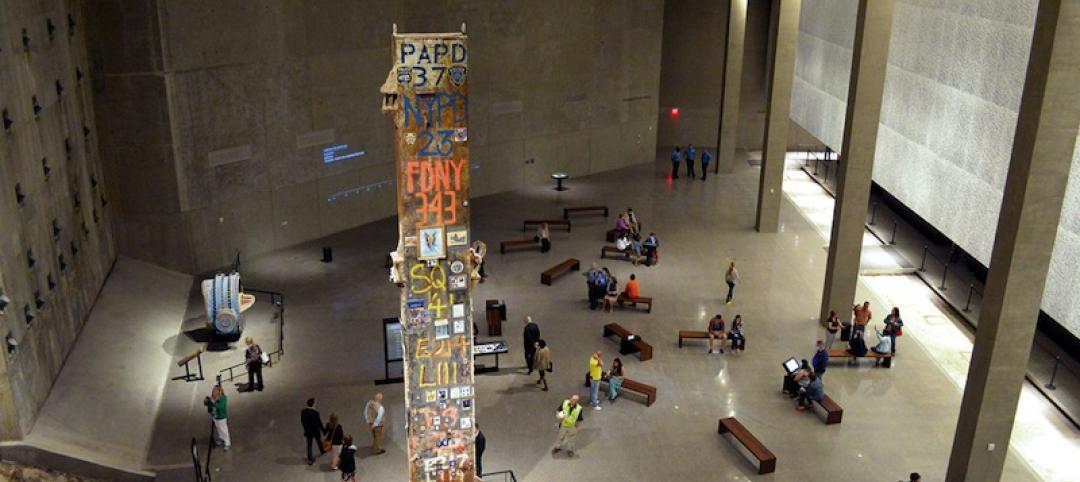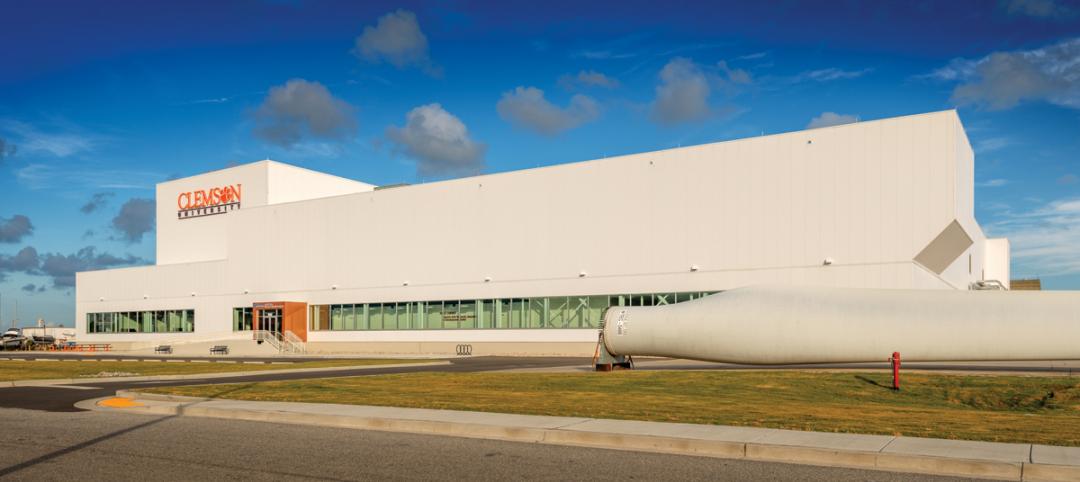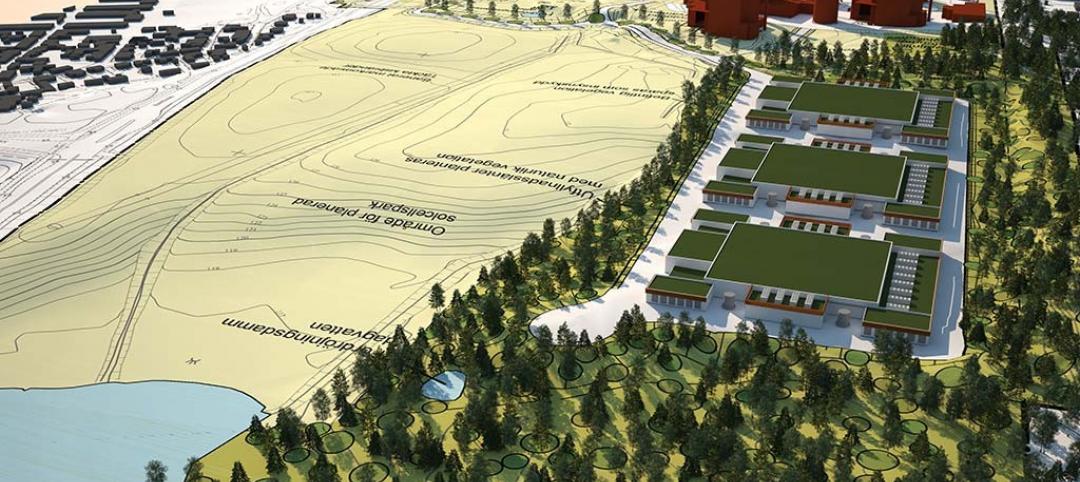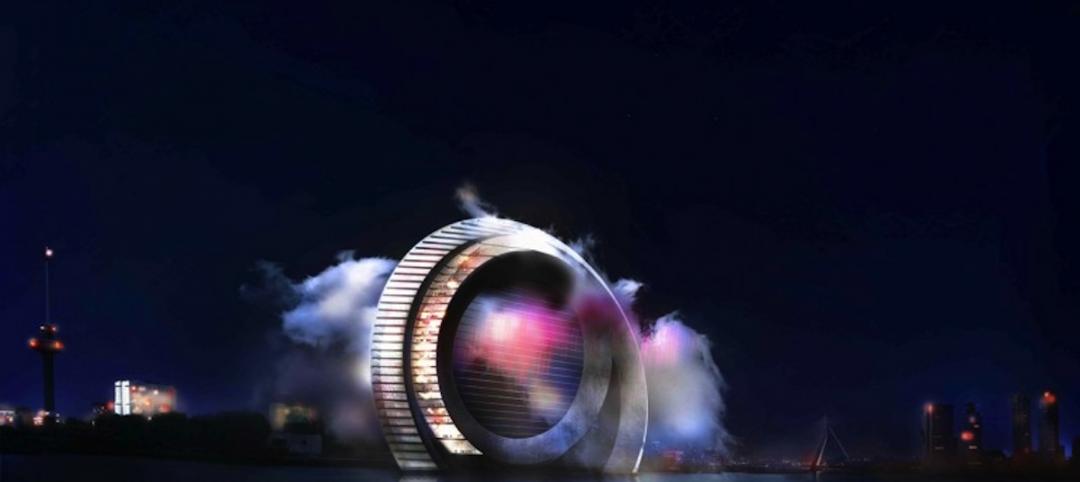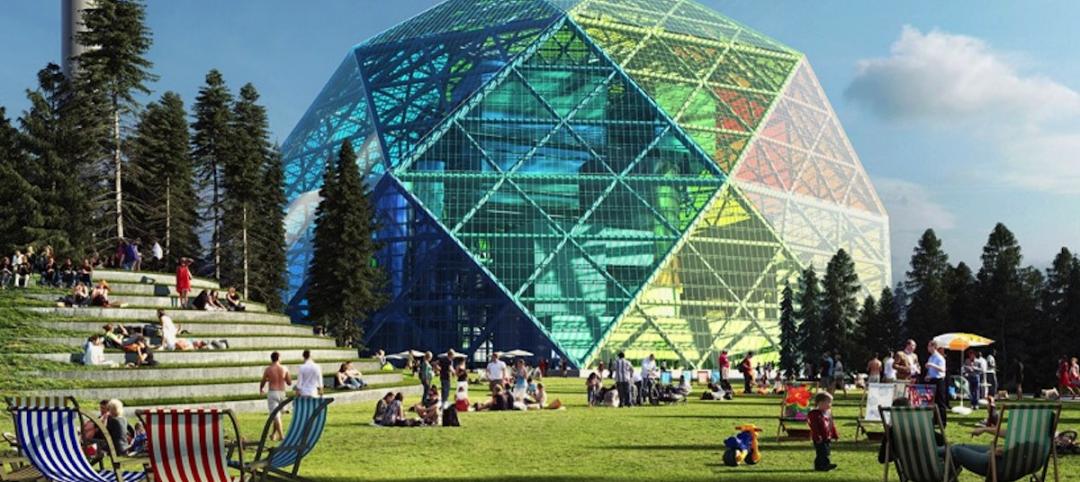From 2010 through 2021, total U.S. industrial inventory grew by 18 percent. Over that same period, demand grew by 24 percent, driven by a surge in ecommerce that was exacerbated by the coronavirus pandemic.
“These events were defining moments that shed light on the fact that there is not enough supply to meet rapidly increasing demand in the industrial market,” states JLL in its research report “The Race for Industrial Space.”
This scarcity in industrial space has led to the sector’s lowest vacancy rate on record, from Los Angeles and Salt Lake City, to Columbus, Ohio, and New Jersey.
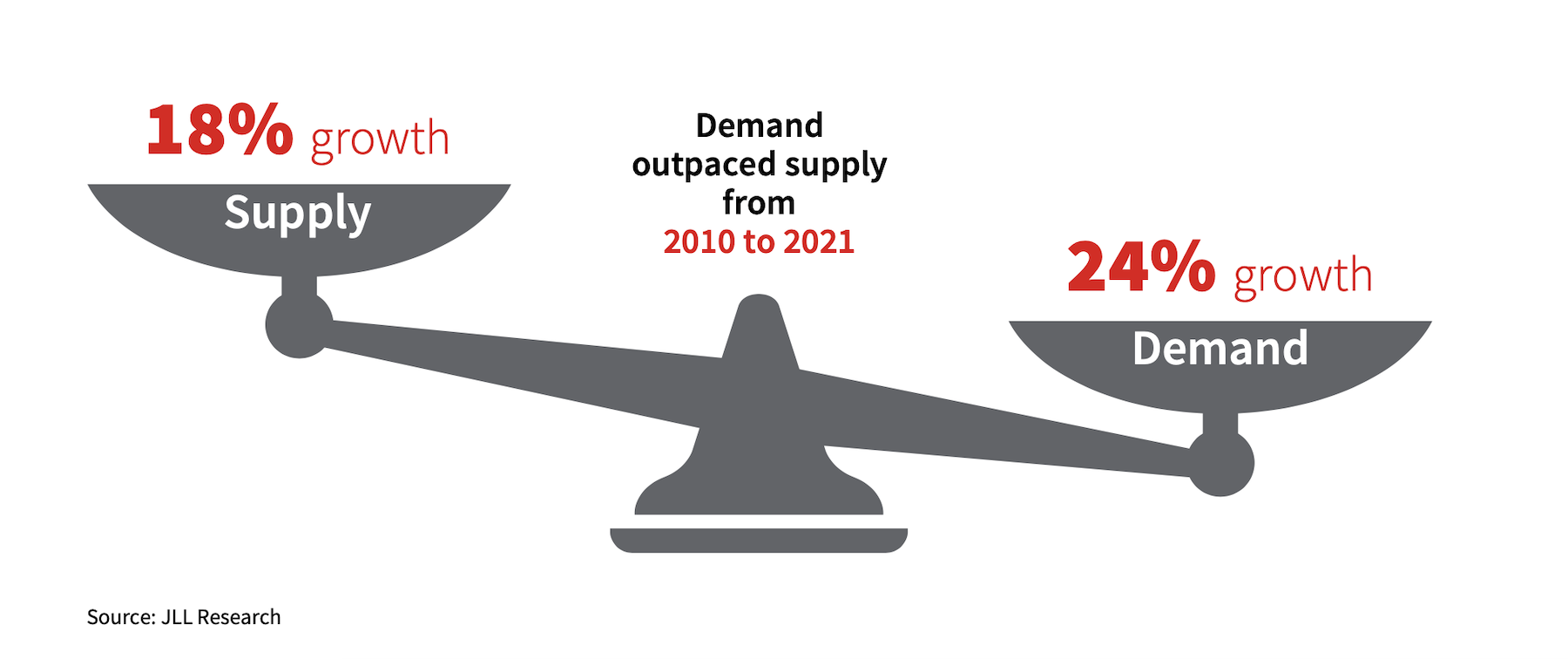
Part of the problem is the sector’s aging warehouses: nearly three-quarters of industrial inventory is 20 years old older, and more than one-quarter is 50 years or older. Owners are scrambling to adapt older, smaller, and less functionally sophisticated facilities within urban centers at a time when demand for Class A space is at its peak, with almost 70 percent of newly modernized inventory pre-leased upon delivery.
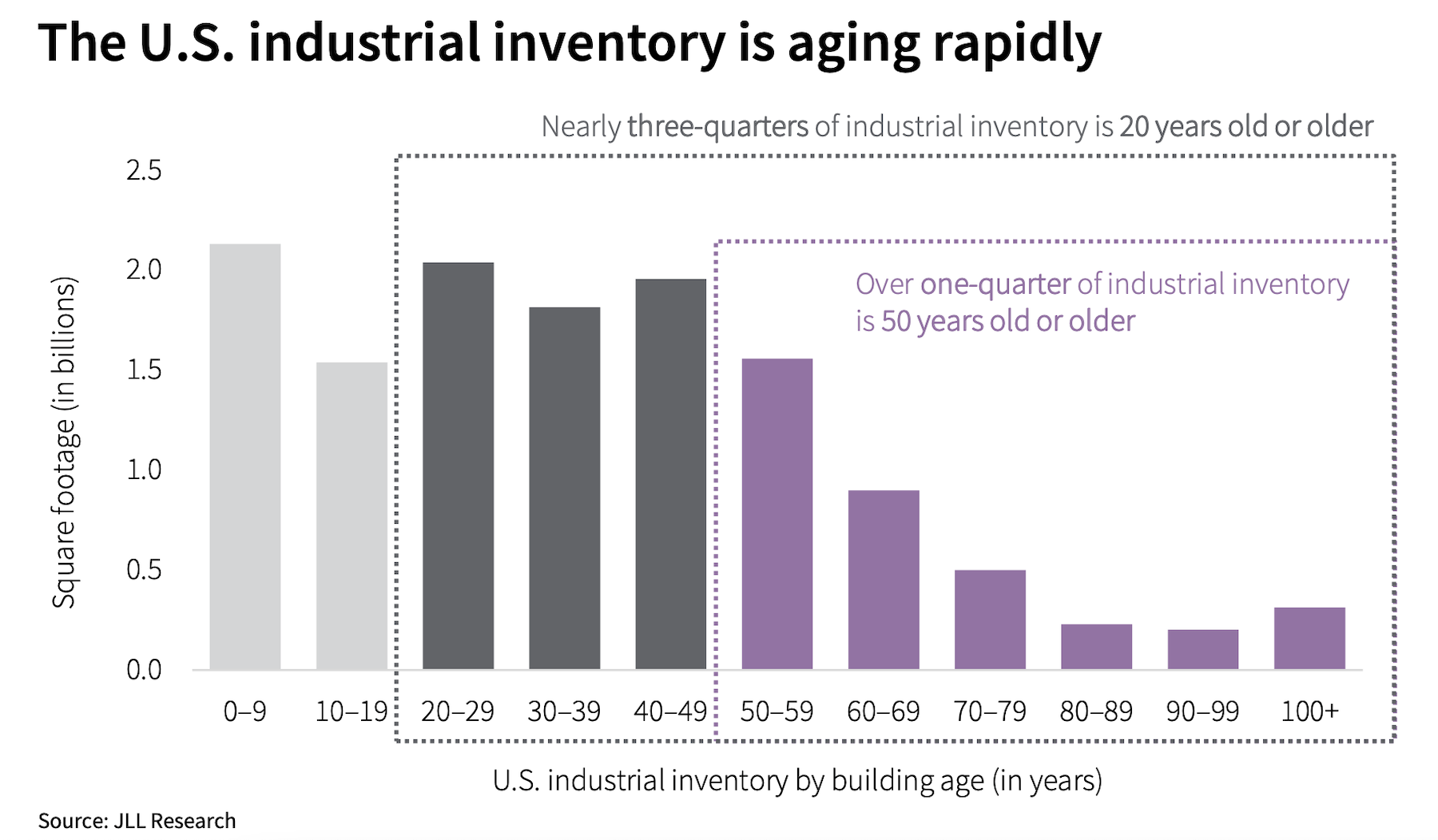
Space shortages have also led to accelerating rent growth. The average asking rents per square foot rose by 37 percent between 2016 and 2021.
BIGGER BUILDINGS IN VOGUE
JLL has identified nearly 100 proposed, under-construction, or existing adaptive reuse or replacement projects across a dozen markets. Distressed malls and vacant big-box stores are among the buildings getting industrial makeovers.
In denser urban areas where land is less available and more expensive, multistory warehouses are popular. One such example is 2505 Bruckner Boulevard, a former movie theater site on 20 acres in New York City that is being converted into a two-story, 1.1-million-sf warehouse with 28- to 32-ft clear heights. JLL states that occupiers of these multistory buildings “who value proximity to customers” are willing to pay top-of-market rents.
While smaller-warehouse developments still account for 60 percent of projects under construction, JLL estimates an 87 percent year-to-year increase in the number of 1-million-sf plus projects being built. “The high cost of land and the economies of scale from building larger structures make big-box facilities an easier fit,” says JLL.
The Sun Belt leads in new industrial development. Some 26 million sf have been delivered in Dallas-Fort Worth, 47 percent of which was pre-leased. More than two-thirds of the 20 million sf in industrial deliveries in Atlanta were pre-leased. Other Sun Belt markets like Houston, Memphis, and Phoenix are also seeing high levels of warehouse deliveries in their markets.
Yet, despite this construction activity, “demand and commodity pricing show no signs of slowing down in the near term,” says JLL. Last year, total costs to build a new warehouse rose 21 percent, according to JLL’s analysis of Bureau of Labor Statistics data. This dynamic “will enable general contractors to justify passing their increased costs to investors and end users.”
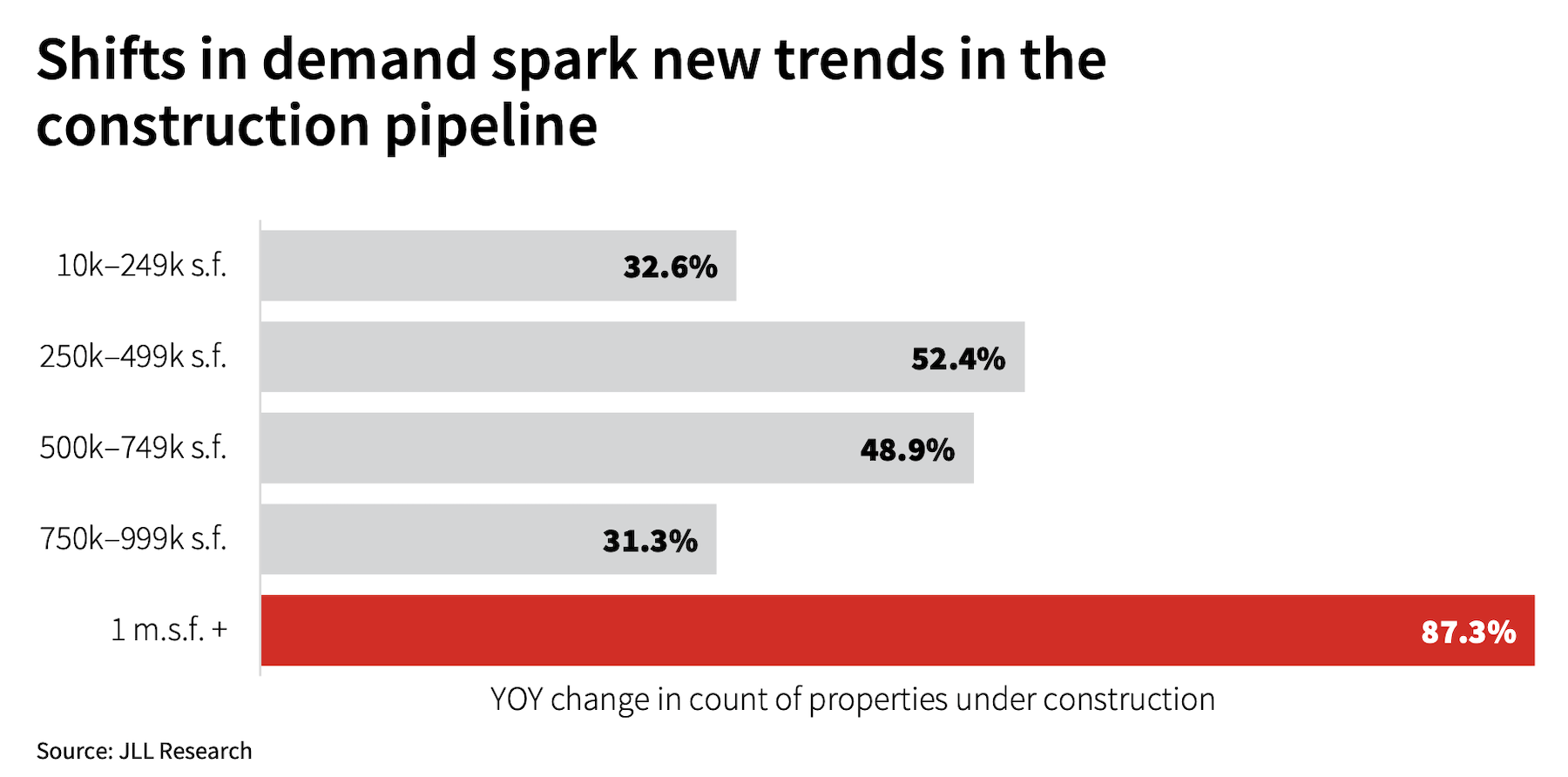
JLL concludes that rents for industrial space will increase more than 8 percent nationally this year, “and could be accelerated by year-end.” Vacancies will remain below the 4 percent threshold, as the imbalance of supply and demand continues through at least 2023. Projects are taking longer to build because of supply-chain delays, and land prices are peaking.
JLL predicts an “increased focus” on urban logistics sites in highly dense infill markets. JLL also foresees more adaptive reuses and conversions in urban centers.
As demand for larger buildings increases, older-generation buildings will be reimagined to accommodate end users with newer-aged features like electric vehicle parking, higher clear heights, increased truck radius maneuvering, and other reconfigurations to meet distribution needs.
Related Stories
Building Team Awards | Apr 10, 2015
14 projects that push AEC teaming to the limits
From Lean construction to tri-party IPD to advanced BIM/VDC coordination, these 14 Building Teams demonstrate the power of collaboration in delivering award-winning buildings. These are the 2015 Building Team Award winners.
Building Team Awards | Apr 7, 2015
Unique test facility will help make wind power more feasible
A new facility at Clemson University makes it possible to test the huge stresses that large-scale wind turbines must be able to withstand.
Building Team Awards | Apr 5, 2015
UK's leading foot and mouth disease lab turns containment design inside out
A daring Building Team breaks the bunker mentality common to research containment with this light-filled, open facility in the English countryside.
Industrial Facilities | Mar 27, 2015
World’s first ‘climate positive’ data center is under construction in Sweden
Excess heat and steam from its servers and IT equipment will warm homes in a town already known for its energy efficiency.
Sponsored | Modular Building | Mar 16, 2015
Modular Space Showcase: Helping BP take command in the Gulf of Mexico
Immediate emergency response to minimize and remedy environmental damage called for temporary, modular spaces.
Codes and Standards | Mar 2, 2015
Proposed energy standard for data centers, telecom buildings open for public comment
The intent of ASHRAE Standard 90.4P is to create a performance-based approach that would be more flexible and accommodating of innovative change.
Industrial Facilities | Feb 27, 2015
Massive windmill will double as mixed-use entertainment tower in Rotterdam
The 571-foot structure will house apartments, a hotel, restaurants, even a roller coaster.
Cultural Facilities | Feb 25, 2015
Bjarke Ingels designs geodesic dome for energy production, community use
A new building in Uppsala, Sweden, will serve as a power plant during the winter and a venue for shows, festivals, and music events during the warm months.
Industrial Facilities | Feb 24, 2015
Starchitecture meets agriculture: OMA unveils design for Kentucky community farming facility
The $460 million Food Port project will define a new model for the relationship between consumer and producer.
Codes and Standards | Feb 12, 2015
New Appraisal Institute form aids in analysis of green commercial building features
The Institute’s Commercial Green and Energy Efficient Addendum offers a communication tool that lenders can use as part of the scope of work.


